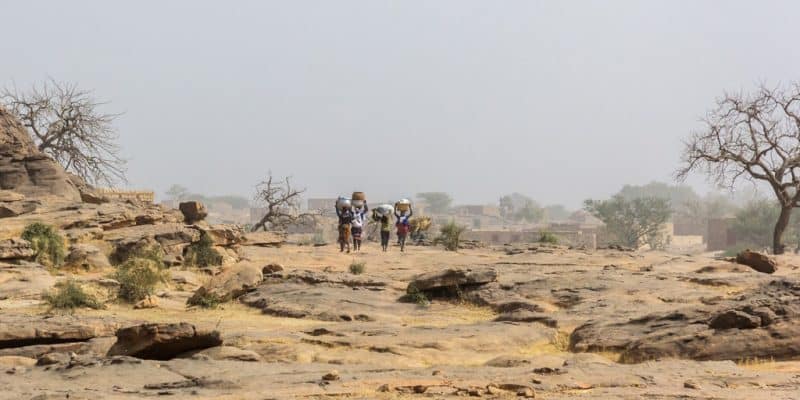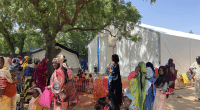The International Development Association (IDA), a subsidiary of the World Bank Group, is providing Mali with $150 million in financing. The funds will be used to restore degraded land in at least 87 councils.
As part of its 2021-2025 Climate Change Action Plan, the World Bank is supporting the Malian government’s efforts to tackle the climate emergency. Its subsidiary, the International Development Association (IDA), is providing $150 million for climate change resilience through the Degraded Land Restoration Project, supported by Mali’s Ministry of the Environment, Sanitation and Sustainable Development.
This Malian government initiative aims to restore land degraded by climate change in at least 87 councils in the regions of Mopti, Ségou, Kayes and Koulikoro. These regions are located on the Mali side of the Great Green Wall, an African Union (AU) initiative that aims to halt the advance of the Sahara desert through reforestation and restoration of agricultural land. With funding from the World Bank, Bamako plans to restore landscapes in the inland delta of the River Niger, which stretches over 64,000 km² between the towns of Djenné and Timbuktu, making it the largest wetland in West Africa.
Restoring 400,000 hectares of degraded land
Similar actions will be carried out in the belt of the Great Green Wall that crosses Mali. In all, according to the Malian government, 400,000 hectares of degraded land will be restored, benefiting 2.3 million people, mainly agricultural migrants affected by climate change, transhumant livestock farmers, internally displaced persons, etc.
Read also- MALI: €54m from the ADF for climate change resilience in rural areas
“In Mali, the security crisis has exacerbated the effects of climate change on livelihoods and on conditions of access to and use of natural resources,” points out Clara De Sousa, the World Bank’s Director of Operations for Mali. That’s why the Malian government is also planning to use World Bank funding to support the establishment of agro-sylvo-pastoral farms integrated into communities. Also with a view to improving people’s livelihoods, community fishing will be developed, as will the sustainable development of non-timber forest products (NTFPs).
Building capacity to implement NDCs
Also known as “non-wood forest products” or “secondary forest products”, NTFPs are goods of biological origin other than wood, derived from forests, other wooded land and trees outside forests. They include, for example, game animals for their fur, fish, fruits (berries, nuts, etc.), seeds, spices, mushrooms, leaves (fodder), medicinal plants, peat and so on.
Part of the World Bank’s funding will be allocated to capacity building, particularly for the implementation of Nationally Determined Contributions (NDCs). This is a target set by each country for the global capping of greenhouse gas (GHG) emissions, in line with the Paris Climate Agreement.
Jean Marie Takouleu







